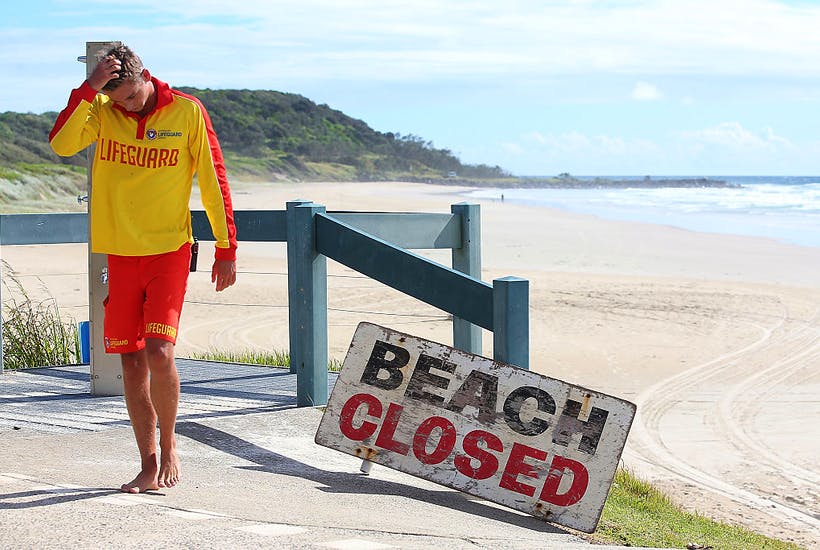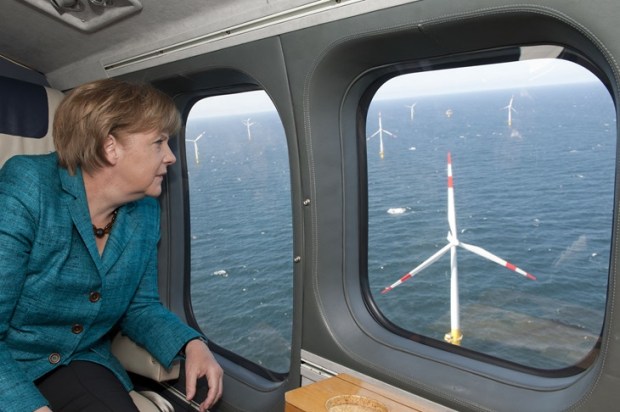For the first time in five years, an Australian politician has acknowledged a bleeding obvious fact about the way we handle the increasing number of sharks at our beaches.
“There is now scientific evidence that smart drumlines do not effectively reduce the risk posed by white sharks,” West Australian Fisheries Minister Don Punch said recently.
In other news, a bear was reported to have defecated near some trees and the Pope addressed a crowd at St Peter’s Square wearing unusual headgear.
The only “smart” aspect of “smart” drumlines is political. They catch dangerous sharks, thereby placating surfers and swimmers. Then they alert a crew to tag and release the animal further offshore, which cleverly also averts infuriating the opposing camp, the Twitter mob that objects to humans killing such “awesome” and “majestic” – but still somehow incredibly stupid – beasts.
This would be a perfect solution if the pesky sharks didn’t then return to our beaches, where attacks continue, sometimes within metres of “smart” drumlines. The devices do not reduce the number of sharks at our beaches, nor do they significantly reduce the number of attacks.
Want to know what does reduce the number of attacks? Killing sharks that stray into popular beaches. That’s what the Queensland government has been doing since 1962, and in that time only two people have been fatally attacked at a protected beach.
But politicians can’t advocate that anymore. Even the Queensland government is throwing taxpayers’ money at investigating alternatives, despite its current protection program being one of the cheapest and most effective in the world.
The ongoing pursuit of solutions is both comical and contradictory. While Punch dismisses “smart” drumlines for Western Australia, in New South Wales the Department of Primary Industries loves the things, and has 35 of them in the water.
On the day that surfer Mark Sanguinetti, 59, was killed at Tuncurry, NSW, last month, a tagged great white, previously caught and released from a drumline, was detected at Forster, an adjacent beach. The next day, the DPI caught, tagged and released two great whites from drumlines at the same beach where Sanguinetti was killed. It does this in the name of research into shark migration, which after two decades has produced precious little new or useful information.
Why does one state government value these devices and another doesn’t? The answer is behavioural. Not of sharks, but humans.
In 2013-14, the West Australian government, which was Coalition at the time, was roundly berated by greenies when, after a series of fatalities, it emulated the lethal Queensland approach. This was bad enough, but when the contractor involved dragged a half-dead tiger shark onto his boat and finished the job with a rifle in front of traumatised environmentalist witnesses, things got a little hysterical.
When the new Labor government was compelled to do something after another spate of fatalities in 2016-17, it chose a trial of the above-mentioned “smart” drumlines. Then fisheries minister Dave Kelly avoided declaring it to be a silver bullet, instead describing it as “part of our comprehensive evidence-based shark mitigation strategy”.
Local fishermen and surfer Keith Halnan criticised the choice of salmon as bait, but the government ignored him. The drumlines caught only two great whites. “It was set up to fail,” Halnan said. Now the drumlines are now back on land, having cost the state a lazy $6.3 million to achieve nothing. And the waters of Western Australia, where almost half the fatalities since great whites were protected nationally in 1999 have occurred, are more dangerous by the day.
Evidence of shark proliferation comes in many ways these days – from surfers, fishermen and divers – but I recently spoke to an amateur fisherman who has the most alarming story I’ve heard so far.
Sam (he didn’t want his surname published for fear of a backlash) is a young bloke from Perth who, with a friend, has a novel way of catching sharks off City Beach, a popular beach in Perth. They paddle a canoe up to 200m off the beach at night, drop a baited hook attached to a fishing line, then paddle back to shore.
When a shark bites, they reel it in, stick a tag supplied by the Department of Fisheries in its dorsal fin, and let it go. Their strike-rate is about 70 per cent, and they beach their catch on about half of their attempts. In 18 months, they have beached about 50 tiger sharks, which means they have hooked about 100. A month ago they caught a 4m tiger only 80m from shore. But here’s the alarming bit: they’ve never beached the same shark twice.
“The numbers have to be increasing because there’s no culling and we’re not moving them on anymore,” he told me.
But even Sam is not concerned. “At the end of the day, the ocean is where they live. I don’t see there’s a problem.”
Politicians must hear this type of environmental sanctimony all the time. I once spoke to a senior federal Liberal MP who agreed that the size and abundance of dangerous sharks in Australian waters were now out of control. Asked why the protection of these animals shouldn’t be lifted, the MP said the government would be “wiped out” at the next election if it tried.
The way we are going, it won’t be long before an Australian politician says that if you are afraid of being attacked by a shark, just don’t go in the water. If that happens, few people will find it surprising. If 2020 proved anything, it is that many Australians believe the government’s role is to isolate them from an increasingly scary world.
I said earlier it had been five years since the last sensible utterance from a politician on this topic. That was when then environment minister Josh Frydenberg said, in 2016, that the welfare of people, not sharks, should be “absolutely first and foremost” in devising policy.
Unfortunately, Frydenberg changed nothing. There have been at least 15 fatal attacks since then. And the likelihood of a politician saying something similarly sensible about sharks has never been lower.
Got something to add? Join the discussion and comment below.
Get 10 issues for just $10
Subscribe to The Spectator Australia today for the next 10 magazine issues, plus full online access, for just $10.

























Comments
Don't miss out
Join the conversation with other Spectator Australia readers. Subscribe to leave a comment.
SUBSCRIBEAlready a subscriber? Log in